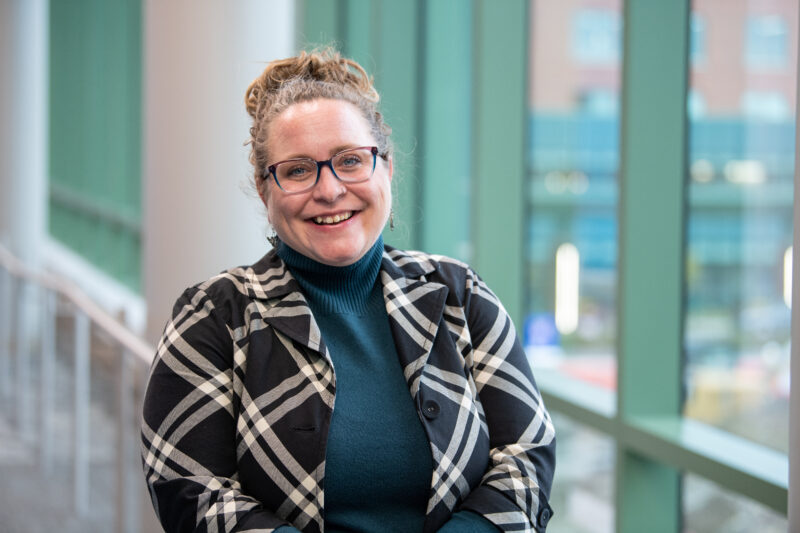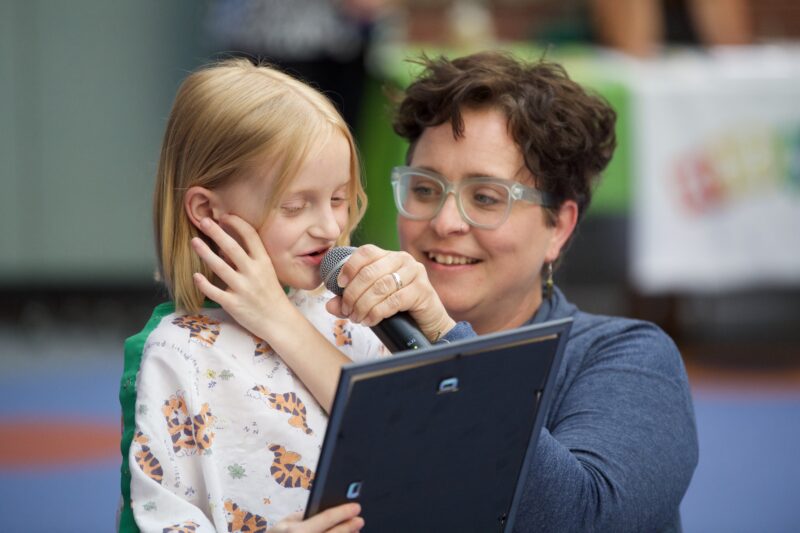
Nicole Robinson
Nicole Robinson, narrative medicine coordinator, was recently honored with the Humanities Award from the American Academy of Hospice and Palliative Medicine for her work advancing the relationship between humanities and palliative care and using the discipline to improve end-of-life care through community and professional education.
Nicole works under the auspices of the Haslinger Pediatric Palliative Care Division in the Emily Cooper Welty Expressive Therapy Center. She provides narrative medicine workshops and individual writing interventions for children and adolescents, their families and hospital staff. Narrative medicine is a discipline of health care that helps patients and health professionals tell and listen to stories of illness.
“I use poetry and literature to help individuals explore the narratives within and around them,” she said. “I work closely with the palliative care research team to advance the field of narrative medicine and hold adjunct faculty status in the College of Medicine at Northeast Ohio Medical University.”
While narrative medicine is a relatively new field, the work of literature and medicine and the medical humanities has been in existence for quite some time.
“The methods and principles of narrative medicine were created from a number of clinical and intellectual foundations,” Nicole said. “The discipline was named and established in the early 2000s by Dr. Rita Charon and her colleagues at Columbia University.”
Research shows that writing is good for both physical and mental health and participating in narrative medicine workshops can increase self-care while decreasing stress and burnout. Nicole’s work centers on bringing these benefits to the lives of families receiving palliative and hospice services, and to the staff working in palliative care to improve communication and overall wellbeing.

Narrative medicine is available for patients and families free of charge. Inpatient consults can be made by a provider or families can self-refer by contacting the Expressive Therapy Center. Photo taken prior to pandemic.
“Narrative medicine is gaining more recognition as the field continues to grow,” she said. “Receiving this award can help to cement its role in the important specialty of palliative medicine.”
Nicole began her position as the narrative medicine coordinator in 2019, but first started offering services in 2013 while she served as the assistant director of the Wick Poetry Center at Kent State University. During her freshman year of college, she volunteered at a juvenile detention center to lead creative writing workshops. She says this is where her work of sharing the tools of creative writing in the community began.
“My work in narrative medicine really began before I knew the discipline existed,” she said. “There can be so much vulnerability in sharing a piece of writing aloud with another person or group of people, and yet it can provide connection and allow the writer to feel heard by others as well as themselves.
“To witness these moments and hold space for them to happen during what could be a difficult moment in the lives of the families we serve is a privilege — and it is by far one of the most rewarding aspects of my work,” she added. “To be recognized by my peers in this important way through the Humanities Award is deeply humbling.”










